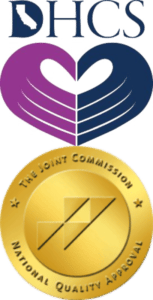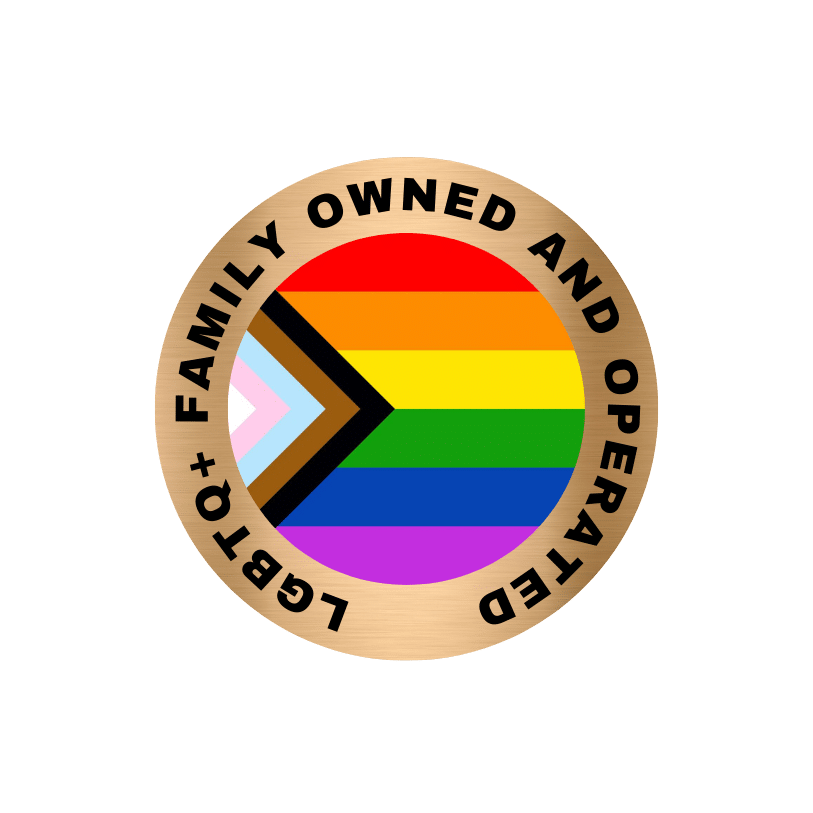At No Matter What Recovery, we understand that addiction can be a family disease. Studies show that addiction and substance abuse affect not only the addicted individual but also their loved ones. We offer family therapy and addiction treatment services in Los Angeles that involve the entire family in the recovery process.
No Matter What Recovery family therapy services are designed to improve communication, resolve conflicts, and develop healthier relationships within the family unit. Take it from us that every family is unique, which is why we offer personalized family therapy sessions to meet the specific needs of each family. Our connection to the LGBTQ+ community allows us the unique insight of knowing that every family has their unique challenges and strengths.
Our licensed marriage and family therapists (LMFTs) are experienced in working with families affected by addiction and can help you identify and address negative family dynamics. We employ various techniques to facilitate communication, such as role-playing, active listening, and problem-solving. We believe that if we can create a safe space for your family to gather, then healing will follow through our guided practices.
At No Matter What Recovery, our goal is to make sure that no corner of the family is left outside the healing process. Everyone should play a part during recovery because everyone can and will contribute to a family’s overall dysfunction. We believe there are many benefits to family systems therapy during addiction treatment, including:
Codependency is a common issue in families affected by addiction. It is a relationship where a person structures their life around pleasing someone else. In the case of addiction, the enabler acts as a referee between the addict and the rest of the family, often giving the addict permission for self-destructive behavior. Family therapy seeks to understand and correct unhealthy relationships that encourage addiction, such as codependency.
Family therapy can help identify negative family roles, such as the enabler, hero, scapegoat, or comic relief. These roles can perpetuate addiction and prevent effective treatment. By identifying these roles, family members can work together to create healthier family dynamics.
Addiction often leads to communication breakdowns within families. Family therapy can help family members learn how to communicate more effectively with each other, which can lead to improved relationships and reduced conflict.
Family therapy can help families build trust and establish clear boundaries. This is particularly important for families affected by addiction, as trust and boundaries may have been broken in the past. By establishing clear boundaries and building trust, family members can support each other in the recovery process.
Family therapy can also help family members develop methods of self-care and encourage interpersonal awareness. This is important for individuals who may have neglected their own needs due to the impact of addiction on the family.
Ultimately, family therapy seeks to create a happier, healthier family unit. By improving communication, and addressing negative family roles and family conflict. By building trust, family members can work together to support each other in the recovery process.
At No Matter What Recovery, we use evidence-based modalities during our family therapy sessions so that we can measure and develop positive, long-term coping strategies. These modalities include:
CBT is a type of therapy that helps individuals identify and change negative patterns of thought and behavior. It is effective in treating addiction by helping individuals develop healthy coping strategies and reducing the risk of relapse.
DBT is a type of therapy that helps individuals develop skills to manage difficult emotions and improve relationships. It is effective in treating addiction by helping individuals develop healthy coping strategies and reducing the risk of relapse.
We know the recovery journey can be difficult, and so we encourage all our patients to engage in our group therapy. Our licensed family therapists manage and arrange for group therapy sessions among all our patients so that they can all make connections that will outlast their recovery journeys.
Even in the LGBTQ+ community here in California, addiction is a widespread issue, and No Matter What Recovery is taking a stand to give back to our community. We offer a wide range of addiction treatment services to help individuals overcome substance abuse and develop positive, long-term coping strategies. Our addiction treatment services include:
MAT combines medication with counseling and behavioral therapy to treat substance abuse disorders. Our MAT program is designed to help individuals overcome addiction and manage withdrawal symptoms.
At No Matter What, our PHP treatment is geared toward helping people stepping out of inpatient treatment. We’ll work with whatever inpatient center you’re coming from, making sure that you have a safe place to live so that you can attend our outpatient services.
Our IOP program is a flexible, outpatient treatment program that provides individuals with the support and resources they need to overcome addiction. Our IOP is meant for people who need to come in multiple times a week, but not necessarily everyday, like our PHP.
Our outpatient rehab program is designed for individuals who do not require the intensive support of an inpatient program. Our outpatient program includes individual and group therapy sessions, as well as support groups and educational workshops.
We believe in treating the whole person, not just the addiction. Our holistic therapy program includes a wide range of therapeutic techniques, such as yoga, meditation, and art therapy, to help individuals heal physically, emotionally, and spiritually.
Many individuals with substance abuse disorders also have underlying mental health conditions. Our dual diagnosis program is designed to address both the addiction and the co-occurring mental health condition.
At No Matter What Recovery, we are more than committed to providing family therapy services that are inclusive and supportive of the LGBTQ+ community. We want to help families in the LGBTQ+ community to better communicate and find their way together.
Our LMFTs are all more than ready to help your family start this journey together. We want to provide you with sessions that are tailored to your family’s unique needs, regardless of gender identity or sexual orientation.
At No Matter What Recovery, we take a family-first approach to addiction treatment. We understand that addiction affects the entire family, which is why we involve the family in the recovery process. Our licensed therapists are experienced in working with families affected by addiction and can help you develop positive, healthy relationships.
We also offer a range of addiction treatment services to meet the specific needs of each individual. Our personalized treatment plans are designed to help individuals overcome addiction and develop positive, long-term coping strategies.
If you or a loved one is struggling with addiction, contact No Matter What Recovery today to learn more about our family counseling and addiction treatment services in Los Angeles.
Individual therapy focuses on the personal psychological needs of one family member, addressing issues such as self-esteem, behavioral problems, and mental health issues. It is a component of our family therapy services at No Matter What Recovery, helping each family member heal individually, which can contribute to healthier family dynamics.
Yes, couples therapy can be an integral part of addiction recovery, especially in addressing relationship issues that may contribute to the cycle of addiction. Our therapists use relational and psychodynamic approaches to help couples improve communication, resolve conflicts, and rebuild trust.
Mindfulness helps individuals become more aware of their thoughts and feelings without judgment. In therapy, mindfulness techniques can lead to reduced stress, better emotional regulation, and improved relationships within the family. This approach is particularly useful in managing life transitions and relational dynamics within the family.
We have a diverse team of providers, including Licensed Clinical Social Workers (LCSWs), Licensed Marriage and Family Therapists (LMFTs), and other mental health professionals skilled in various therapeutic modalities. This diversity ensures that we can offer specialized care for a wide range of mental health issues and personal dynamics.
Behavioral techniques in family therapy involve identifying and altering unhealthy behavioral patterns within the family. Techniques like role-playing, active listening, and setting boundaries are used to address behavioral problems and improve the overall functioning of the family.
Individuals Transitioning from Rehab: Those who have completed an inpatient rehabilitation program and are seeking a gradual transition back into everyday life. Sober living homes provide a balance of independence and support that is crucial during this phase.
People Seeking a Supportive Community: Residents who benefit from being around others who are on a similar path of recovery. Peer support and a sense of community are significant aspects of sober living homes.
Those Needing Structure and Accountability: Individuals who thrive in environments with set rules, responsibilities, and routines. Most sober living homes have guidelines such as curfews, mandatory meetings, and regular drug testing, which help residents maintain their sobriety.
People Working or Studying: Sober living homes are well-suited for those who are ready to engage in work, school, or other productive activities but still require a stable and substance-free living environment.
Individuals Committed to Long-Term Sobriety: Residents who are serious about their long-term recovery and willing to engage in ongoing therapy, counseling, or 12-step programs typically find sober living homes beneficial.
Absolutely. Our therapy services are designed to support individuals and families going through significant life transitions, whether related to personal, relational, or professional changes. Our therapists help you navigate these transitions, offering strategies for adjustment and growth.

Monica received an M.A. in Clinical Psychology from Pepperdine University, a B.A. in Psychology from the University of Colorado, and is a licensed Marriage and Family Therapist

Monica received an M.A. in Clinical Psychology from Pepperdine University, a B.A. in Psychology from the University of Colorado, and is a licensed Marriage and Family Therapist

